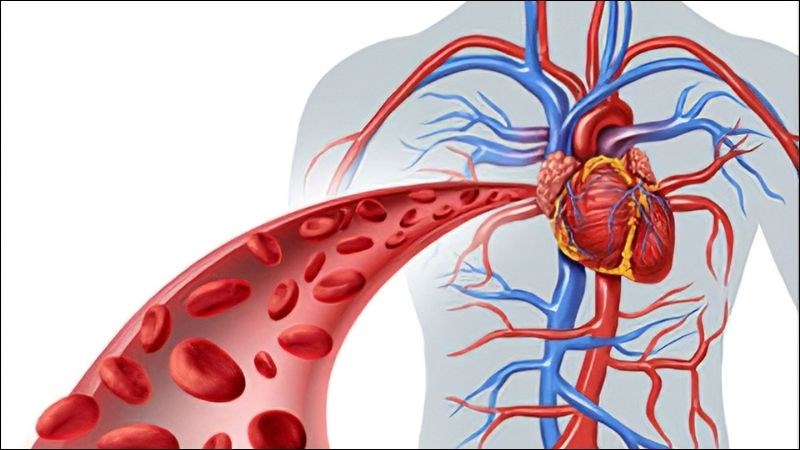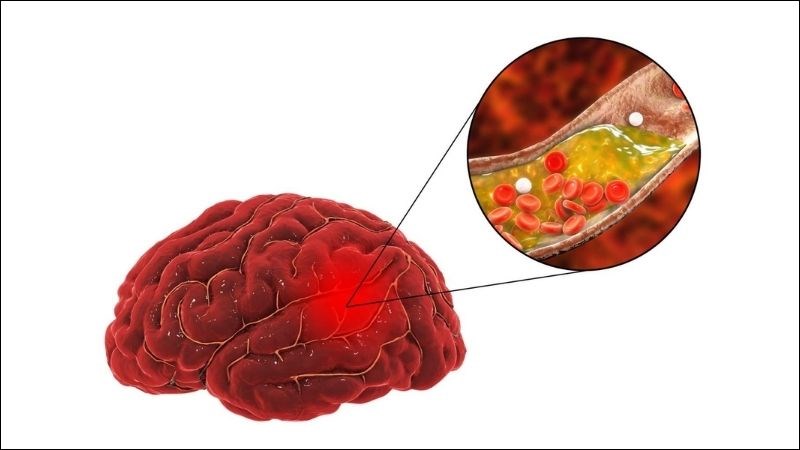Magnesium is a mineral that plays a very important role in the health of our body and brain. Let’s find out through the following article to know clearly what magnesium does, how to use it and its side effects, as well as what foods we can supplement magnesium through.
1. What is magnesium?
Magnesium is an essential mineral for the human body, playing an important role in many physiological processes. Magnesium is the fourth most abundant mineral and the second most abundant intracellular cation after potassium.
As a catalyst for more than 300 biochemical reactions, magnesium participates in most life processes such as regulating the interaction between hormones and receptors, controlling muscle contraction, nervous system activity, maintaining blood vessel tension and regulating heart rate.
In particular, magnesium is necessary for the active transport of potassium and calcium ions across cell membranes. Moreover, the activity of ATP – the main source of energy for cells, also depends entirely on the presence of magnesium.

Magnesium is an essential mineral for the body.
2. Effects of magnesium on the body
Improving bone health
To have strong bones, we need both calcium and magnesium. Magnesium helps the body absorb calcium better by regulating vitamin D and calcium levels in the blood, and participates in the bone formation process, helping to increase bone density, reduce the risk of osteoporosis and improve bone crystal formation.
In addition, magnesium is also an essential element for the synthesis of parathyroid hormone (PTH) – a hormone that plays an important role in regulating blood calcium. When there is a lack of magnesium, this process is interrupted, leading to a decrease in blood calcium and an increased risk of osteoporosis.

Magnesium helps strengthen the health of the musculoskeletal system
Reduce migraine symptoms
Many studies have shown that people with migraines often have a magnesium deficiency in their blood. Magnesium supplementation is considered a simple and inexpensive method to prevent recurrent headaches.
Magnesium deficiency causes magnesium levels in the blood and brain tissue to be lower than normal, affecting nerve conduction and limiting blood vessel constriction, thereby causing migraines.
However, to achieve preventive effects, the dose of magnesium needed to supplement is often higher than the daily requirement and can cause some unwanted side effects. Therefore, patients should consult a doctor for advice on the appropriate dose and ensure health safety.

Magnesium supplements may reduce migraines
Helps reduce blood pressure
Magnesium plays an important role in lowering blood pressure by acting as a natural calcium channel blocker and as a cofactor of the Na-K-ATP pump. This mechanism helps dilate blood vessels, reduce peripheral resistance and thereby reduce blood pressure.
In addition, magnesium also helps regulate heart rate by controlling the conduction of electrical impulses at the atrioventricular node, contributing to stabilizing blood pressure.
A study that synthesized data from 22 clinical trials with the participation of 1,173 people who supplemented with magnesium at doses ranging from 120 to 973 mg per day for 3 to 24 weeks. The results showed that magnesium supplementation can help reduce both systolic and diastolic blood pressure. This effect was more pronounced with higher doses of magnesium.

Lowering blood pressure is one of the effects of magnesium.
Helps fight inflammation
Magnesium deficiency not only affects bone and joint health, but also contributes to chronic inflammation in the body. Research has shown that children with low magnesium levels often have higher CRP levels, which is a sign of ongoing inflammation.
In addition, magnesium deficiency is also associated with blood sugar and blood lipid problems. However, supplementing magnesium through diet or supplements can help reduce inflammation, improve biochemical indicators, and prevent many chronic diseases.

Magnesium also has anti-inflammatory effects.
Cardiovascular protection
Magnesium deficiency can increase myocardial excitability, leading to dangerous arrhythmias. Therefore, magnesium is often recommended in some cases such as torsades de pointes, digoxin-associated arrhythmias, ventricular arrhythmias such as ventricular fibrillation and ventricular tachycardia.
Magnesium plays an important role in regulating cardiac activity by acting as a natural calcium channel blocker and as a cofactor of the Na-K-ATP pump. Magnesium helps stabilize the activity of the cardiac conduction system, especially at the AV node.

Magnesium may help regulate heart rate and blood pressure
Preventing the risk of stroke
A 7-8 year study of 9,820 people with an average age of 65.1 conducted by the American Heart Association showed that people with low blood magnesium levels had a higher risk of dying from cardiovascular disease.
Therefore, magnesium supplementation can help prevent the risk of stroke thanks to its ability to dilate blood vessels, reduce blood pressure, stabilize heart rate, and prevent heart rhythm disorders that can lead to stroke.

Magnesium supplements may reduce stroke risk
Helps Prevent Diabetes
Studies have shown that magnesium plays an important role in controlling blood sugar levels and reducing the risk of type 2 diabetes.
According to a review published in the International Journal of Diabetes in 2015, people with diabetes often have low levels of magnesium in their bodies. Magnesium deficiency can worsen insulin resistance, a major factor in type 2 diabetes.
Another study from the Department of Nutrition at Harvard University was conducted on 85,000 women and 42,000 men over a period of 12-18 years. The results showed that people with dietary magnesium supplements reduced the risk of developing type 2 diabetes by up to 34%.
Through the above studies, it is shown that magnesium supplementation can help improve the body’s ability to use insulin, control blood sugar and reduce the risk of developing diabetes more effectively.

Many studies show that people with diabetes have low blood magnesium levels.
Support treatment of constipation
Magnesium when taken into the body has a laxative effect, helping to increase intestinal motility and soften stools. The mechanism of action of magnesium is to retain water in the intestines, creating conditions for stools to move easily and be eliminated.

Magnesium may help relieve constipation symptoms
Improve Anxiety and Stress Disorders
According to a recent study from the Larner School of Medicine at the University of Vermont, supplementing with 248 mg of magnesium per day can significantly improve symptoms of depression.
The study focused on magnesium chloride and the results showed that this type of magnesium was particularly effective in reducing symptoms of depression and anxiety disorders in both men and women, regardless of age.

Reducing stress and anxiety is one of the effects of magnesium.
Helps improve memory
Researchers at the Neurocentria Center (Center for Cognitive Impairment Disorders) have confirmed that increasing magnesium in nerve cells plays a key role in maintaining and strengthening neural connections, thereby improving cognitive ability in the elderly.
Studies were conducted on a group of people aged 50 – 70 who were experiencing memory and sleep problems. After 12 weeks of magnesium supplementation at a dose of 25mg/kg of body weight per day. The results showed that their cognitive ability had improved significantly, reaching an increase of 10%.

Magnesium helps improve memory
Reduce the risk of kidney stones
Magnesium deficiency not only causes hyperlipidemia but is also a leading risk factor for kidney stone formation.
A large-scale study of 560,180 people, published in The American Journal of Gastroenterology, confirmed the important role of magnesium in preventing kidney stones.

Magnesium plays an important role in preventing kidney stones.
Reduces Cramps in Pregnant Women
Scientists at Linkoping University Hospital, Sweden conducted a 3-week trial of magnesium supplementation in pregnant women. The study showed that magnesium was significantly effective in reducing the common cramps in pregnant women.
In addition, magnesium is also used as a spasmolytic to delay premature labor. By stimulating the reabsorption of calcium into the endoplasmic reticulum of muscle cells, magnesium helps relax the uterine muscles, thereby preventing excessive contractions and preventing premature labor.

Magnesium helps reduce cramps in pregnant women
Treatment of gastric ulcers
Magnesium used in the treatment of gastric ulcers is usually in the form of magnesium hydroxide – a substance that, when entering the stomach, creates a membrane to help protect the stomach lining from attacks by gastric acid. Common preparations containing magnesium in the treatment of gastric ulcers are Phosphalugel, Malox, Gaviscon,…

Magnesium can be used to treat stomach ulcers.
3. Side effects of magnesium
Some common side effects when using magnesium include:
- Hypotension.
- Vasodilation.
- Impaired reflexes.
- Abdominal pain.
- Diarrhea.
- Flatulence.
- Nausea/vomiting.
- Respiratory failure.
- Electrolyte disturbances (hypocalcemia, hyperkalemia).
- Hypermagnesemia.
In addition, in some cases, the use of magnesium may cause serious side effects such as:
- Cardiovascular failure.
- Respiratory failure or paralysis.
- Hypothermia.
- Impaired heart function.
- Pulmonary edema.
4. How to use and dosage of magnesium
The amount of magnesium that the body needs each day is specifically recommended in the Dietary Reference Intake (DRI), a nutritional standard issued by the Food and Nutrition Board (FNB) of the National Institute of Medicine of the United States, as follows:
| Year old | Male | Female | Pregnant | Breastfeeding |
| From birth to 6 months | 30mg | 30mg | ||
| 7 – 12 month | 75mg | 75mg | ||
| 1 – 3 year old | 80mg | 80mg | ||
| 4 – 8 year old | 130mg | 130mg | ||
| 9 – 13 year old | 240mg | 240mg | ||
| 14 – 18 year old | 410mg | 360mg | 400mg | 360mg |
| 19 – 30 year old | 400mg | 310mg | 350mg | 310mg |
| 31 – 50 year old | 420mg | 320mg | 360mg | 320mg |
| Above 50 year old | 420mg | 320mg |
Most of us can easily meet our daily magnesium needs through a balanced diet. Foods such as avocados, green leafy vegetables, nuts and whole grains are good sources of magnesium.
Too much magnesium from the digestive tract is not harmful because the body is able to self-regulate by eliminating the excess through urine and stool.

The amount of magnesium the body needs each day varies by age and subject.
5. Interactions with magnesium
The use of magnesium supplements can interact with many different drugs, affecting the treatment effectiveness or causing unwanted side effects. Therefore, people who are taking medication should consult their doctor or pharmacist before taking magnesium supplements.
Some interactions between magnesium are drugs such as:
- Bisphosphonate drugs: Magnesium supplements can reduce the effectiveness of oral bisphosphonate drugs (eg alendronate – a drug used to treat osteoporosis). To ensure the best effect of the drug, the time of taking these two drugs should be at least 2 hours apart.
- Antibiotics: Magnesium can combine with antibiotics such as tetracycline and quinolone to form insoluble complexes, reducing the treatment effectiveness of the drug. To ensure maximum absorption of the drug, the time of taking magnesium should be at least 2 hours before or 4-6 hours after taking antibiotics.
- Diuretics: Long-term use of diuretics such as furosemide, bumetanide, hydrochlorothiazide, and ethacrynic acid can significantly reduce magnesium levels in the body by increasing urinary excretion. In contrast, potassium-sparing diuretics such as amiloride and spironolactone help retain magnesium in the body. Proton pump inhibitors: Long-term use of proton pump inhibitors (PPIs) such as esomeprazole or lansoprazole can lead to hypomagnesemia. Therefore, the FDA recommends checking blood magnesium levels before and during PPI treatment
6. How to supplement magnesium safely and effectively
To achieve the goal of having a healthy body, in addition to supplementing enough magnesium, the way to supplement is also an important issue to consider. Start with a low dose if you want to supplement magnesium and it is best to supplement magnesium through meals to help reduce the risk of negative side effects, such as diarrhea and digestive problems.
If you must supplement magnesium through pills, it is best to contact your doctor for scientific advice and ensure that any adverse interactions that may occur are minimized.
7. Notes before and after using magnesium
To supplement magnesium safely and effectively, you need to note the following:
- Calcium and phosphorus reduce the absorption of magnesium in the small intestine, so do not use these minerals together. When there is both calcium and magnesium deficiency (such as in postmenopausal women), magnesium supplementation should be prioritized first.
- Magnesium and vitamin B6 are often combined because they both participate in metabolic reactions in the body. However, they should not be used with levodopa to treat Parkinson’s disease because vitamin B6 inhibits this drug.
- Magnesium and potassium are often combined because they both have effects on the heart. However, they should be used as directed by a doctor to avoid overdose.
- The elderly need to be careful when using products containing magnesium because of the risk of increasing blood magnesium levels, causing serious symptoms such as nausea, vomiting, and even death.
To ensure the body has enough magnesium, we should prioritize magnesium-rich foods such as whole grains, beans of all kinds, especially dark green leafy vegetables. These are natural and effective sources of magnesium.
8. Contraindications
The use of magnesium requires caution and medical advice, especially for the following groups of people:
- Renal failure: Kidney function should be carefully assessed before using magnesium. Renal failure can reduce the ability to excrete magnesium, leading to the risk of poisoning.
Neuromuscular disease: Patients need to be closely monitored when using magnesium because it can cause muscle weakness. - Pregnant women: Although there are no absolute contraindications, it should be used under medical supervision. Long-term use, more than 5 to 7 days, can cause problems with bones and calcium metabolism.
Many drugs can interact with magnesium, increasing or decreasing blood magnesium levels.
9. Notes on overdose and toxicity
When magnesium is overdosed, it will lead to toxicity causing serious conditions, specifically:
- Magnesium concentration in the blood above 2.6 mg/dL: causes hypermagnesemia with symptoms including vasodilation causing flushing, hypotension, decreased reflexes and respiratory depression. This condition occurs when magnesium is supplemented too much and too quickly.
- Magnesium concentration in the blood above 6 mg/dL: directly affects the process of electrical impulse conduction in the heart, leading to characteristic changes on the ECG:
Prolonged PR interval: The PR interval represents the time of electrical impulse conduction from the atria to the ventricles. When magnesium in the blood increases, this conduction process is slowed down, causing the PR interval to be prolonged. - Expanded QRS complex: The QRS complex reflects the time of excitation and contraction of the ventricles. When magnesium concentration increases, electrical impulse conduction in the ventricles is also slowed down, leading to a wider QRS complex.
- Peaked T Waves: The T wave represents the repolarization of the ventricles. Hypermagnesemia alters this process, causing the T wave to be taller and sharper than normal. Blood magnesium levels above 15 mg/dL: cardiac arrest can occur at any time.
Hopefully, this article has provided readers with useful information about the effects of magnesium and precautions when using it. If you find this article useful, please share it with your friends and family!





